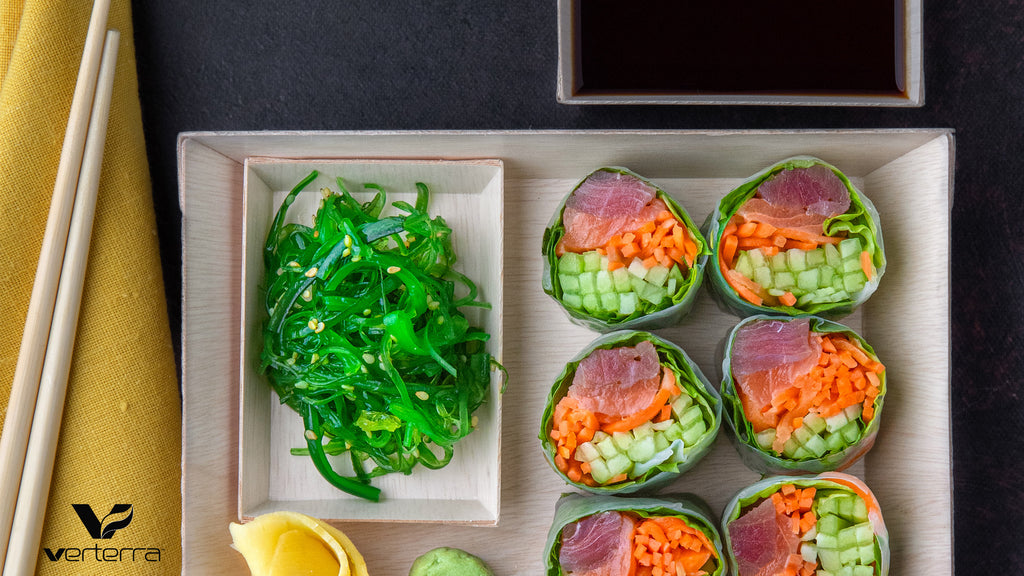
Behind the Brand: What Makes VerTerra Different From Other Palm Leaf Products

VerTerra has been making a big impact on the sustainable dinnerware industry since its inception in 2006. Founded by Michael Dwork, VerTerra has become a leader in the sustainable lifestyle space with the creation of its flagship, game-changing dinnerware: The Palm Leaf Plate.
With its sleek and stylish design, this Dinnerware from Fallen Leaves ™ has been recognized by the Smithsonian, the Natural Products Association, and the NY Restaurant Association, just to name a few. But VerTerra isn’t just another sustainable dinnerware company; we’re also a company that believes that protecting the environment just makes sense.
With every eco-conscious choice we make as individuals and a society, we not only help create a better, greener planet for future generations, but we also reduce the demand for products that do more harm than good. By reducing the demand for harmful products, we also reduce the demand for workers who are forced to work in poor conditions for little to no pay and for companies that use harmful materials to produce products.
To better understand who we are and what VerTerra is all about, we’re pulling back the curtain and looking behind the scenes at our brand and our company.
How we got our start
During his time at business school, our founder and CEO, Michael Dwork, took on an internship that led him to a region of India known for its abundant supply of fallen palm leaves. There, he witnessed the traditional practice of using palm leaves to serve food within the community. Michael Dwork, Founder and CEO of VerTerra explains, “One of the people that I was working with invited me to the village that he was from. And when I was there, that’s when I saw the traditional, or rural, version of this product that I just fell in love with.”
Bearing witness to this practice sparked an idea: what if we could reimagine this practice and utilize the fallen palm fronds in a more sustainable and modern way while also giving back to the local community? And thus, VerTerra was born.
How we make our products
We make our signature palm leaf plates out of fallen palm fronds collected from farmers local to the region. Each farmer is paid for their harvested palm fronds, which in turn allows them to invest back into their farms and families. We then bring the leaves back to drying yards where the fronds are dried fully and then stored in 40,000-square-foot warehouses in order to be used as raw material for our plates.
From there, each palm frond gets sorted and segmented by size, with our smallest leaves being 8 inches by 30 inches and our largest leaves being 3 feet by 6 feet! Our leaves are then heavily sprayed with water to rid them of bugs and dirt residue before being steamed, pressure-washed, warmed and pressed. The leaves are then segmented and cut into smaller pieces to be formed into our plates.

What makes us different
With so many look-alike products on the market, it can be difficult to determine what makes VerTerra different. The secret lies in the process.
Getting the temperature just right is essential to creating the perfect plate (and is one of the many things that sets VerTerra apart from other companies). Dwork explains, “Every leaf has a natural layer of wax that coats the top and bottom of the palm frond. We strip it on the bottom and we leave [the wax] on the top. But we have to heat every plate to the right temperature, for the right amount of time to melt that natural layer of wax that’s on the leaf.”
Utilizing a renewable resource like the palm leaf, leaving the wax on one side of the leaf, and heating it up to the right temperature is what allows our plates to be durable enough to hold food and liquids without leaking, standing the test of time and creating a truly sustainable product.
Unlike other products marketed as “compostable,” VerTerra’s dinnerware is 100% BPI-certified compostable. This means the products have been independently tested to ensure they can be composted in a commercial composting facility.
In order to be BPI-certified compostable, products must do no harm — and in some cases, they must contribute to — the health of the surrounding soil. All that to say, don’t be so quick to pick up any product with “compostable” on its packaging. Get a BPI-certified product like VerTerra.
Additionally, by supporting VerTerra through purchasing our products, people are not only helping to create a more sustainable planet but also supporting the economic empowerment of farmers and the people of rural India and Indonesia. To date, VerTerra has employed over 900 women in 2022 alone and over 10,000 over the course of the company.

Bottom line
Make sustainability the centerpiece of your meals with VerTerra, whether it's for personal use or business use. VerTerra offers an array of eco-friendly products that can be used for special occasions, catering, events, food service and more. So, whether you're planning a big event or just looking for everyday, eco-friendly dinnerware, VerTerra has got the right product for you.
Shop our product line nowAlso in The Dirty Dish

Reducing Operational Waste in Hospitality: The Business Case for Compostable Disposables
The hospitality industry faces increasing pressure to embrace sustainability, driven by environmental regulations, consumer preferences, and rising waste management costs. For hotels, stadiums, and catering businesses, transitioning to compostable disposables offers not just environmental benefits but also tangible operational and financial advantages.

Palm vs. Bamboo Plates: Why Palm Wins for the Planet, But Bamboo Has Its Place
When it comes to eco-friendly tableware, palm and bamboo plates often top the list. Both offer compostable, natural alternatives to plastic or Styrofoam, but which one truly leads the charge for sustainability? In this article, we’re diving into the pros and cons of palm and bamboo plates, comparing their environmental impact, production processes, and ideal uses. Spoiler alert: palm plates come out on top for the planet when it comes to plates, but bamboo has its own shining moment too.

